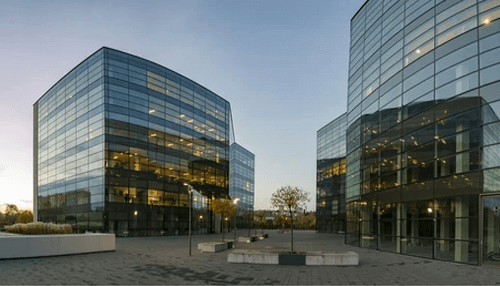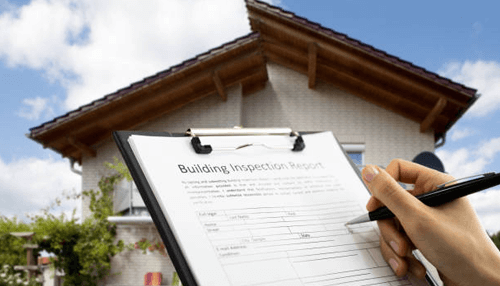Commercial properties can be a significant investment, but it’s important to do your due diligence before signing any contracts. There are several things you’ll need to inspect before making your purchase. These inspections help you ensure that your new commercial property is safe, clean, and ready for all the business you have in mind.
Commercial Property – Inspect the Building’s Condition
The condition of the building is one of the most important things to inspect when purchasing a new commercial property. You’ll need to make sure that the structure is sound and that there aren’t any major repairs that need to be done. If the property is in bad shape, it may be difficult or expensive to fix it up, so be sure to budget for repairs in your purchase price.
Remember to Inspect the Commercial Property following areas:
- Roof: Have one of the top roofing companies in Northern Kentucky look for missing or broken tiles, check the roof hatch and make sure that the roof isn’t leaking.
- Exterior Walls: Check for cracks and holes in the exterior walls.
- Windows and Doors: Ensure that the windows and doors open and close easily, and aren’t damaged. Also, look for signs of rot or rust around fasteners. If you are interested in installing a new door you can check Dock Doors.
- Plumbing: Check for leaks, rust, and corrosion. All plumbing should be up to code. Hire an experienced plumbing contractor to do inspections and estimate any necessary repair work that needs to be done.
- Interior Walls: Ensure that interior walls are solid, free of cracks, and aren’t damp or moldy. Remember that electrical wiring needs to be run through studs in load-bearing walls, so the walls need to be structurally sound. Furthermore, if there are signs of mold, hire an industrial hygienist or mold remediation Denver to do further inspection.
- Floors: Look for cracks or gaps in the floor. Also, check that the floors are level throughout the building. Finally, be on the lookout for uneven surfaces, which may cause problems when moving heavy equipment across your property.
Check the Commercial Property Surrounding Area
When inspecting the surrounding area, you’ll want to ensure that it’s safe and accessible. The area should be well-lit, and there shouldn’t be any major construction or roadwork happening nearby. If the property is in a busy area, make sure that there are enough parking spots for your employees and customers.
Some things to check for are:
- Surrounding Businesses: Ensure that there are enough businesses in the immediate area to support your investment. A building sitting on a street with little or no foot traffic won’t do you much good.
- Crime Rates: Check for crime rates in the surrounding areas, as this could indicate how safe it is to visit your property. If you are storing large amounts of inventory or expensive equipment, you’ll want to make sure that your property isn’t in an unsafe area.
- Accessibility: Ensure there are sidewalks and crosswalks within walking distance of the property for employees and customers. Also, check whether or not public transportation (buses, subways) is accessible from the area. Additionally, there should be easy access to highways or expressways nearby.
Research Local Regulations
When researching local regulations, it’s essential to make sure that you’re aware of all the laws and restrictions that apply to your business. You don’t want to open a business and then shut it down because you weren’t following the proper zoning regulations.
Some things you’ll want to research are:
- Zoning Laws: Make sure that the property is zoned for the type of business you’re planning to open. If it’s not, you may have to go through the process of getting a zoning change approved, which can be time-consuming and expensive.
- Business Licensing: Every city has different licensing requirements for businesses. Make sure you know what’s required for your business, and start the licensing process early to avoid delaying your opening. Also, consider whether or not your business will need a special permit to work in the area.
- Other Regulations: Some businesses may be prohibited from opening within a certain radius of another one. If you want to open up next to an existing fast-food restaurant, for example, there may be restrictions on where you can build and how close it can be.
Get a Survey of the Land
A land survey is an integral part of the due diligence process when purchasing a commercial property. By getting a survey of the land, you can identify any potential problems with the commercial property before you sign any contracts. Please make certain to reach out to a properly set up survey company with a view to setting up for the completion of this inspection promptly and effectively.
They have the information and understanding to inform you approximately the exact limits of your own property, identify any infringements, provide details on underground functions which include utilities or pipelines, and offer insights into the elevation of the terrain.
Check for Environmental Hazards
When inspecting a commercial property for environmental hazards, you’ll want to look for any signs of pollution or contamination. This could include:
- Gasoline Storage Tanks: If the property has been used to store gasoline in the past, there’s a good chance there will be some contamination.
- Oil Storage Tanks: Oil storage tanks can also contaminate the soil and groundwater.
- Leaking Underground Storage Tanks: If an underground storage tank is leaking, it can contaminate the soil and groundwater with harmful chemicals.
- Landfill Sites: If a property has been used as a landfill site, there’s a good chance of contamination.
- Contaminated Soil: If the soil is contaminated with hazardous materials, it can be dangerous to your health and your property.
Before making a decision to buy commercial property, it’s far critical to thoroughly conduct your due diligence, meticulously analyzing and assessing all of the key regions worried. By dedicating the essential effort and time to this manner, you may substantially enhance the chances of your investment thriving and attaining fulfillment ultimately. It is through this complete method that you can mitigate risks and make informed decisions, in the end leading to a more fruitful and prosperous investment endeavor.




